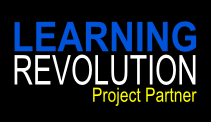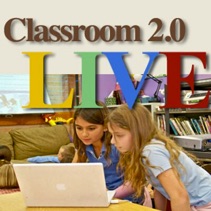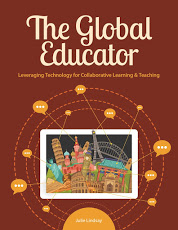Konrad Glogowski
Toronto, Ontario, Canada
Blog: http://www.teachandlearn.ca/blog
Bio
Konrad Glogowski is a PhD Candidate at the Ontario Institute for Studies in Education of the University of Toronto. His doctoral dissertation focuses on building online communities of learners to facilitate the development of literacy skills at the senior elementary level. Konrad also teaches Language Arts to grades 7 and 8 at a K-8 school just outside Toronto, Canada. He has been documenting his research and classroom experiences on his blog of proximal development since February 2005.
Bio Page
https://k12online07presenters.wikispaces.com/Konrad+Glogowski
Presentation Title
“Initiating and Sustaining Conversations: Assessment and Evaluation in the Age of Networked Learning”
Description
This presentation aims to address some of the challenges associated with assessment and evaluation in Web 2.0 classrooms. Specifically, it will address how to develop strategies and tools that engage students in the assessment and evaluation process, and help them stay in control of their learning and their progress. Consequently, a strong emphasis will be placed on developing assessment and evaluation procedures and habits that not only complement but also foster the interactive and learner-centric environments afforded by the interactive tools of the read/write web. The presenter will share strategies to assess and evaluate student work on blogs, wikis, and discussion forums.
Presentation
Powerpoint
http://k12online.wm.edu/kglogowskipresentation.ppt
iPod ready
http://k12online.wm.edu/kglogowskivideo.mp4 (36:02 Run Time; mpeg4, 36.3 MB)
Original
http://k12online.wm.edu/kglogowskivideo.wmv (36:02 Run Time; wmv, 33 MB)
http://k12online.wm.edu/kglogowskivideo_web.wmv
http://www.slideshare.net/teachandlearn/assessment-and-evaluation-in-the-age-of-networked-learning
http://blip.tv/file/430904
Audio only
http://k12online.wm.edu/kglogowskipresentation.mp3 (36:02 Run Time; mp3, 33 MB)
Supporting Links
blog of proximal development » Blog Archive » Replacing Grading with Conversations
http://www.teachandlearn.ca/blog/2007/04/25/replacing-grading-with-conversations/
blog of proximal development » Blog Archive » Making Assessment Personally Relevant
http://www.teachandlearn.ca/blog/2007/05/27/making-assessment-personally-relevant/
blog of proximal development » Blog Archive » Instructional Scaffolding
http://www.teachandlearn.ca/blog/2007/07/30/instructional-scaffolding/
What is “Take My Hand”?
“Take My Hand”
[tags]k12online07cl05, k12online07[/tags]








Konrad,
You’re an inspiration! You perspire the passion you have for teaching and sharing. Thanks for showing us the wonderful journey you’re taking your students to.
I’ll contact you to be our special guest at the EVO 2008 Blogging4Educators!
Carla Arena
Konrad, you have created a rich educational resource for language arts (and other subject area) educators. Your research and use of expert quotes greatly enhanced the presentation. I also appreciated the way in which you demonstrated student exemplars and evaluation tools. Your model of evaluation and assessment has stimulated and challenged the thinking behind traditional modes of assessment for student writing. Blogging is about being able to continue the conversation and thus summative assessment is not appropriate. Thanks for sharing and I look forward to hearing more about the research results from your dissertation.
AS a new blogger I found your lecture very insightful. I have just started a blog for my students to meet home work needs but now I see how much more I can use the tool. I am so excited to finally teach students with technoology the love.
Ahh, wonderful. Thank you for articulating my feelings about blogging and creating such a meaningful metaphor for the process. I can’t wait to share this with my kindergarteners who are at this stage on week 3 of blogging. I have enlisted their parent’s support because their feedback is soo important. A few parents really grasp the value of their words on their child’s intrinsic motivation to write. Some have spread the word to other family members. I have one highly motivated student who persuaded her 2nd grade sister to help her post comments on two friends blogs! She sees the value. She’s six. The work you are doing is invaluable and you can be sure I will share it via my own blog and in school with my colleagues. Outstanding presentation!
I too have just begun using a blog in my classroom. Your presentation gives me the tools and confidence to turn what I am doing into a much more productive and benificial teaching practice. I only have a few questions about the amount of time you students have on computers at school and some of your computer lab classroom management strategies. Thank you again for a very beneficial presentation.
I am done listening and watching the slideshare and am very excited to hear about the new shape of assessment! I know we use the term “new shape of….” often for information but I think it fits well with for this issue. Assessment is coming under the microscope now as so many of us are using Web2.0 applications in the classroom. The old methods may or may not provide an accurate measurement of learning. Then on a whole other level, we talk about skills. Training reels right into another type of assessment measurements. I will go and think about the old and the new. To Memorize or Metamorphize? Thank you for getting me started on a new way of thinking about assessment. How can I begin to build a system based on this concept that stands up to the old world standards but keeps the door open for this progressive “conversation”? It is only fitting to finish with….”To be continued” as that is how conversations go.
Thank you for stretching my thinking about grading and assessment. I have been using blogs for a few years with college students but realized some great skills I need to add through watching this presentation. I particularly like how you described grades ending the conversation. What a great thought! There was so much deep learning in this presentation it took me about 3x the running time to watch it so I could take notes and absorb all the important points. Great job!
I keep thinking about your comment that grades stop learning and when I consider my own university experiences I agree completely.
The scaffolding you created to develop blogging with your class is going to provide many of us with the confidence to follow in your footsteps. What I really like about your assessment is that it is immediate and based on the individual students needs.
I am also curious about what computer time your students get during a week. Blogging regularly for 30 students can take allot of computer time depending on your resources.
Pingback: Weebly | Online Learning Centre